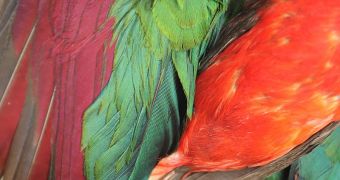On an international scale, we are responsible for leaving 227 million tons of plastic materials behind every year.
An average individual from China uses 12 kg of plastic annually. Western Europe contributes with 65 kg , and North America with 90 kg, increasing the dimensions of the global issue represented by the disposal of plastic waste.
Despite all regulations which tried to control the entire phenomenon, people choose to randomly throw away the plastic items they don't need around their household anymore, not knowing that such a product will be absorbed by the environment in up to 100 years.
Major companies which operate on the market have focused their attention on eco-fiendlier ways of manufacturing their products, paying attention to the fact that once their items' life will end, their presence shouldn't affect the environment's fragile balance.
Improvements and innovation are trying to preserve Mother Nature's gifts, while also giving buyers the opportunity to display their eco-conscious attitude.
One of the most recent breakthroughs relies on chicken feathers, which might be used in the process of manufacturing plastic.
Scientists have explored their potential and they were able to state, at the American Chemical Society annual meeting that chicken feather-based thermoplastics are a viable option: they are both mechanically strong and stable in water.
This theory put into practice will make the industry get out of its complicated relationship with its petroleum equivalent, leading to the creation of greener biodegradable thermoplastics.
The innovation has a lot of potential, since it can count on the contribution of 3 billion pounds of chicken feathers every year, which would otherwise end up in landfills.
The initiative of taking care of their plastic items has been developed also by major eco-concious brand such as Nokia and Fujitsu.
Nokia managed to launch successful recycling programs based on pre-paid envelopes offered to their clients, while Fujitsu proudly announced that the mouse provided for their computers will be manufactured out of Arboform and Biograde, two biodegradable plastic materials which have nothing to do with petroleum.

 14 DAY TRIAL //
14 DAY TRIAL //